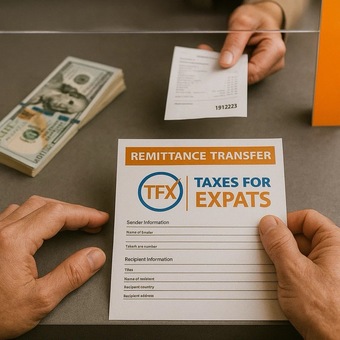IRS issues warning on tax refund scams involving credits
The Internal Revenue Service (IRS) has recently issued a warning to taxpayers about potential scams involving inflated refund claims, particularly those related to the Fuel tax credit, Sick and family leave credit, and household employment taxes.
Overview of the issue
The IRS has observed a surge in fraudulent tax refund claims, spurred by misleading social media advice and unethical tax preparers.
These scams often promise large refunds by exploiting less common tax credits for which many taxpayers do not legitimately qualify.
Common tax scams: What you need to know
As taxpayers strive to maximize their returns, some fall prey to common tax scams, especially those related to specific tax credits.
Also read – Form 1116: Claiming the Foreign Tax Credit
Here's a closer look at how these credits are intended to be used, how they're commonly misused, and steps to ensure you're not caught in a scam.
Understanding targeted tax credits
Fuel tax credit
- Purpose: Designed for businesses that utilize fuel for off-highway activities, such as farming or construction.
- Misuse: Often wrongly claimed by individuals without any qualifying business activities, leading to false claims.
Sick and family leave credit
- Purpose: Originally introduced to aid self-employed individuals during the pandemic for the years 2020 and 2021.
- Misuse: Incorrectly claimed by some for regular employee sick leave or under misrepresented conditions.
Household employment taxes
- Purpose: Allows employers to pay taxes on behalf of legitimate household employees, such as nannies or housekeepers.
- Misuse: There are instances where taxpayers fabricate employee expenses to claim these credits falsely.
IRS guidance for taxpayers
If you suspect that you may have mistakenly claimed these credits due to misleading advice, the IRS recommends several steps:
- Verify eligibility: Confirm that you meet the criteria for the credits you've claimed.
- Seek professional advice: Consult with a reputable tax professional who can provide clear guidance and help correct any missteps.
- Consider amending your return: If ineligible claims were made, filing an amended return may be necessary to rectify the situation and avoid further penalties.
Also read – What is Form 1040-X: Amended Tax Return?
The risks of falling for tax scams
The consequences of erroneous claims can be severe:
- Delayed refunds: Legitimate refunds may be held up as the IRS reviews suspicious claims.
- Financial penalties: Substantial fines can be levied against those who make fraudulent claims.
- Audits and legal action: In serious cases, audits or criminal charges may follow.
Tips to protect yourself
To safeguard against scams and ensure your tax filing is accurate:
- Be wary of dubious tax advice: Remain skeptical of tax advice that seems too good to be true, particularly from unverified sources.
- Avoid 'ghost preparers': Always ensure that any tax preparer you use properly signs your tax return and includes their PTIN.
- Stay informed: Keep up to date with legitimate tax changes directly from reliable sources.
By understanding these points and taking proactive measures, taxpayers can protect themselves from scams and ensure their tax filings are both accurate and lawful.



